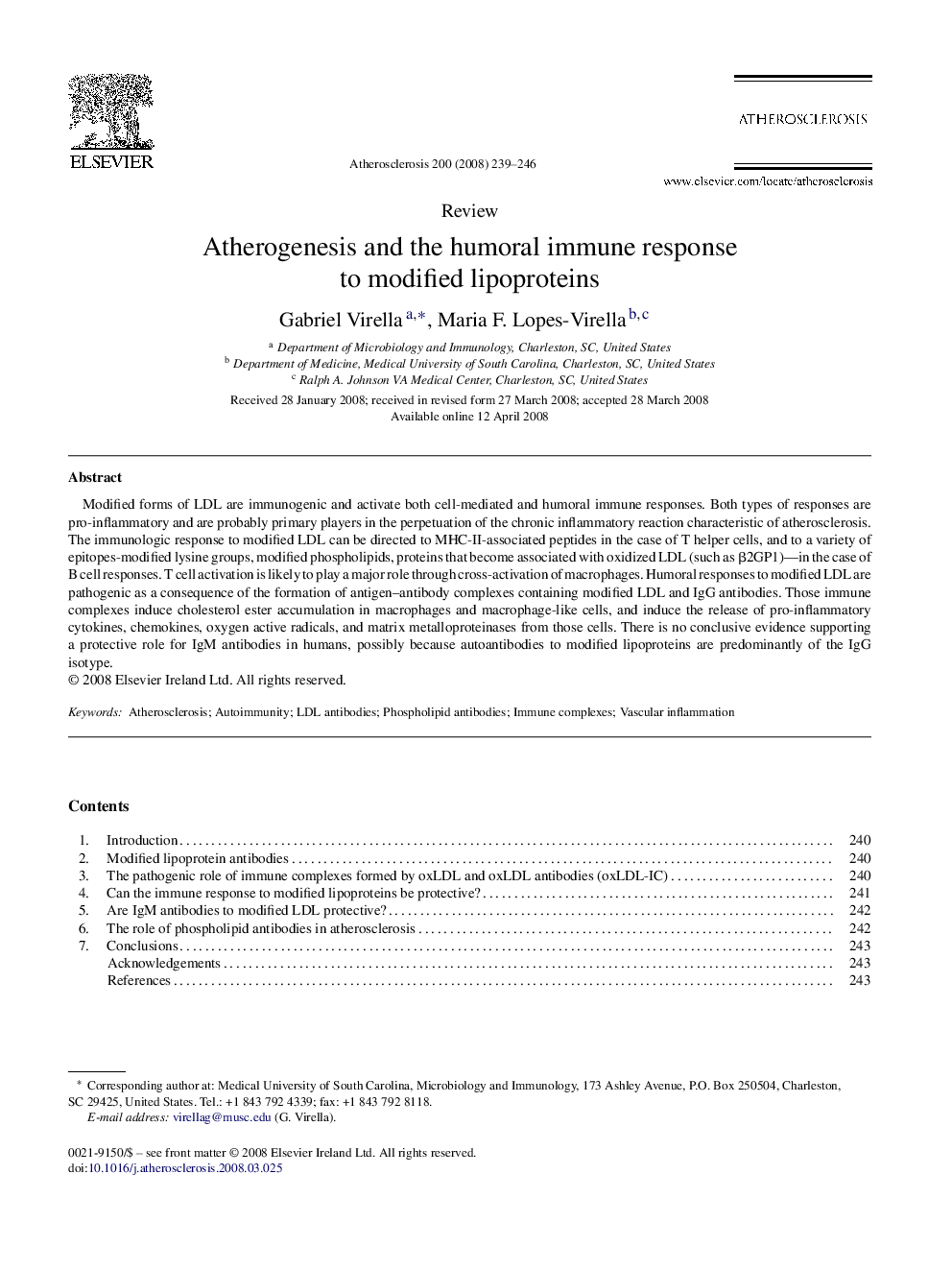| Article ID | Journal | Published Year | Pages | File Type |
|---|---|---|---|---|
| 2894560 | Atherosclerosis | 2008 | 8 Pages |
Modified forms of LDL are immunogenic and activate both cell-mediated and humoral immune responses. Both types of responses are pro-inflammatory and are probably primary players in the perpetuation of the chronic inflammatory reaction characteristic of atherosclerosis. The immunologic response to modified LDL can be directed to MHC-II-associated peptides in the case of T helper cells, and to a variety of epitopes-modified lysine groups, modified phospholipids, proteins that become associated with oxidized LDL (such as β2GP1)—in the case of B cell responses. T cell activation is likely to play a major role through cross-activation of macrophages. Humoral responses to modified LDL are pathogenic as a consequence of the formation of antigen–antibody complexes containing modified LDL and IgG antibodies. Those immune complexes induce cholesterol ester accumulation in macrophages and macrophage-like cells, and induce the release of pro-inflammatory cytokines, chemokines, oxygen active radicals, and matrix metalloproteinases from those cells. There is no conclusive evidence supporting a protective role for IgM antibodies in humans, possibly because autoantibodies to modified lipoproteins are predominantly of the IgG isotype.
